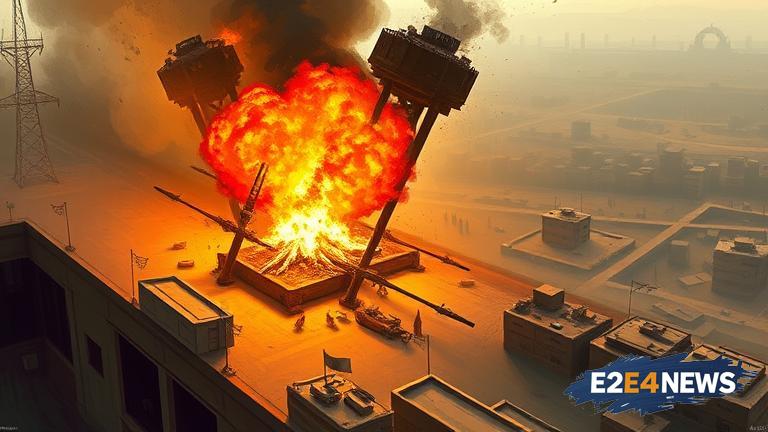Hezbollah, a Lebanese Shia Islamist political party and militant group, has strongly condemned the recent Israeli strike in east Lebanon, labeling it a major escalation. The strike, which occurred in a remote area of east Lebanon, has raised concerns about the potential for increased tensions between Israel and Hezbollah. According to reports, the Israeli military carried out the strike in response to alleged Hezbollah activity in the area. However, Hezbollah has denied any involvement in the incident, claiming that the strike was an unprovoked attack on Lebanese territory. The incident has sparked widespread condemnation from Lebanese officials, with many calling for calm and restraint in the face of Israeli aggression. The Lebanese government has also lodged a formal complaint with the United Nations, urging the international community to condemn the Israeli strike. Meanwhile, Israeli officials have defended the strike, claiming that it was necessary to prevent Hezbollah from establishing a military presence in the area. The incident has significant implications for the region, as it threatens to destabilize the already fragile peace between Israel and Lebanon. The two countries have a long and complex history of conflict, with periodic outbreaks of violence along their shared border. In recent years, tensions have been heightened by Hezbollah’s growing military presence in Lebanon, which Israel views as a significant threat to its national security. Despite the risks, many analysts believe that a full-scale war between Israel and Hezbollah is unlikely, at least in the short term. However, the potential for miscalculation and unintended escalation remains high, particularly given the complex web of alliances and rivalries in the region. As the situation continues to unfold, the international community is urging all parties to exercise restraint and avoid any actions that could further destabilize the region. The United States, in particular, has called for calm, with officials emphasizing the need for a peaceful resolution to the crisis. The European Union has also weighed in, urging all parties to respect the sovereignty and territorial integrity of Lebanon. As the crisis deepens, many are watching with bated breath, wondering what the future holds for this volatile and unpredictable region. With its complex history, fragile peace, and multitude of competing interests, the situation in east Lebanon remains a major concern for the international community. The incident has also sparked a wider debate about the role of external powers in the region, with many questioning the impact of Israeli and Iranian involvement on the stability of Lebanon. Ultimately, the key to resolving the crisis will be finding a way to address the underlying tensions and competing interests in the region, while also ensuring the sovereignty and territorial integrity of Lebanon.
